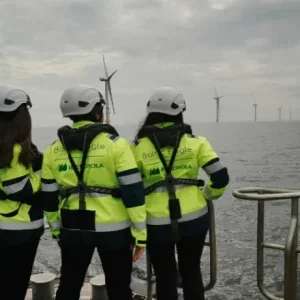We’ve always adhered to the now-popular saying ‘Every day is Earth Day,’ explained Fred Maas, president of Black Mountain Ranch LLC, developers of the new home community Del Sur. Instead of throwing hazardous materials into the trash, where it will eventually end up in a San Diego landfill, Del Sur homeowners are doing their part — one bulb at a time — to protect the environment by recycling CFLs in a safe, responsible way.
According to the California Department of Toxic Substances Control, since 2006, household wastes such as batteries, electronic devices and fluorescent light bulbs may not be placed in the trash by anyone. The scientists at the California Environmental Protection Agency have found that these wastes will leak toxic substances, mostly metals, in a typical landfill.
The CFL disposal program at Del Sur is also part of the California Take-It-Back partnership. California Take-It-Back partnership is a collaboration of state, city and county governments; businesses; non-profit agencies and non-governmental organizations to provide free, local and convenient ways for California residents to recycle everyday household wastes. The partnership provides a path for California residents to assist the California Environmental Protection Agency in its mission to protect public health and the environment.
Del Sur is an eco-friendly community that blends environmental commitment with architectural excellence. The master-planned community has set a benchmark for green-building practices by meeting and exceeding environmental requirements, and has become a leading example for sustainable communities.
The impact of Del Sur’s green practices are common throughout the community. Since its inception, Del Sur has set an example by implementing mandatory recycling and conservation requirements for builders. Construction waste has been recycled and reused in the community’s development whenever possible, allowing over 92% of waste to be diverted from the landfill. Water conservation efforts are also evident through the mandatory use of tankless water heaters, weather-based satellite irrigation systems, and drought-resistant landscaping. Del Sur requires at least 20% of homes to include solar energy systems with many neighborhoods incorporating solar power in up to 40% of homes. Upon completion, Del Sur will be one of the largest solar-powered communities in California.
Designed over nearly 20 years in consultation with a variety of environmental and civic groups, the 1,800-acre community of Del Sur is planned to eventually include 2,500 market-rate homes, 469 low-income homes, business and commercial space, a transit center, a fire station, two schools and more than 2,000 acres of dedicated open space shared with sister community Santaluz.






